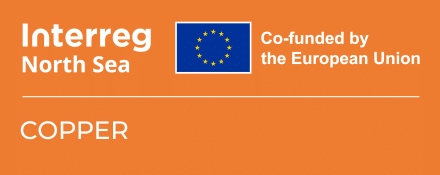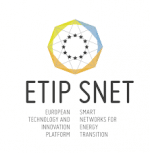COPPER

COPPER – Cities for Open and Participative Planning for Electricity grid Resilience
The local energy transition is a great opportunity for consumer empowerment, local green jobs, and a decarbonised power supply. But producing, consuming, and managing electricity more locally presents new challenges for European towns and cities.
Renewables deployment is rapidly progressing, to meet rising electricity demand of 6,800 TWh by 2050. Clean, flexible, decentralised, and digital energy systems are central to meeting the EU’s goal of climate neutrality by 2050. However, integration of intermittent renewable sources into the power network introduces a number of challenges to congestion management, network instability and grid planning. This is particularly challenging for North Sea Region where renewable generation is world-leading. If no action is taken, €584bn will be required for grid reinforcement by 2030.
To prepare Europe’s local authorities for their new role in coordinating local energy systems, a European-wide alliance of 13 local energy system frontrunners has formed to test new technologies, business models and planning methods.
Achieving a smooth local energy transition means local authorities must take on new planning and coordination responsibilities to build a strong and reliable local energy system. Working with Distribution System Operators (DSOs), local businesses, building owners, and many more stakeholders, local authorities will be the stewards of a fit-for-purpose local energy system.
In particular, the collaboration between DSOs and local authorities is increasingly important to coordinate the decentralised energy system considering their role as grid users, policy makers and community engagers. Among many other benefits, the cooperation of cities and DSOs can lead for example:
-
- To the definition of demand response programs where cities can provide flexibility services adapting the consumption and demand of their public infrastructure to the needs of the local grid.
-
- To the integration of energy in urban planning processes, considering the needs and constraints.
-
- Moreover, DSOs and cities can work together to enhance the resilience of the energy infrastructure and ensure that essential services continue during emergencies.
Funded by the Interreg North Sea programme, the Cities for Open and Participative Planning for Electricity Grid Resilience (COPPER) initiative is the first Europe-wide collaboration to test and demonstrate local energy action planning (LEAP), a bundle of techniques and activities that will enable local authorities to design locally-powered cities.

Objectives
Through a four-year process, COPPER will:
-
- Deliver six first-of-a-kind pilots for local authority-led energy planning, from logistic parks to electric vehicle (EV) fleets to entire neighbourhoods.
-
- Explore ways that Distribution System Operators (DSOs) and local authorities can work together to build a local energy system of storage and flexibility technologies, policies, market incentives and collaborations to help locally powered cities thrive.
-
- Build data models and other tools to boost local authority’s capacity to understand and steer their local energy system.
-
- Develop long-term LEAPs in collaboration with transnational cities, local DSOs, the private sector and other relevant energy actors.
Pilots
E.DSO and DSOs
Five DSOs will be involved in the COPPER activities.
Among them, two of our members Stedin & Fluvius will be involved in the Dutch and Belgium Pilots.
Wesernetz, Varberg Energi and the DSO of Fredericia Municipality in Denmark will also be part of the project undertakings.
In COPPER, E.DSO will contribute to the dissemination and awareness-raising tasks that are fundamental to the project’s value. E.DSO will disseminate the technical findings and action plan outputs of the project to support grid congestion and renewables integration solutions in NSR and beyond.
Contact: projects@edsoforsmartgrids.eu


